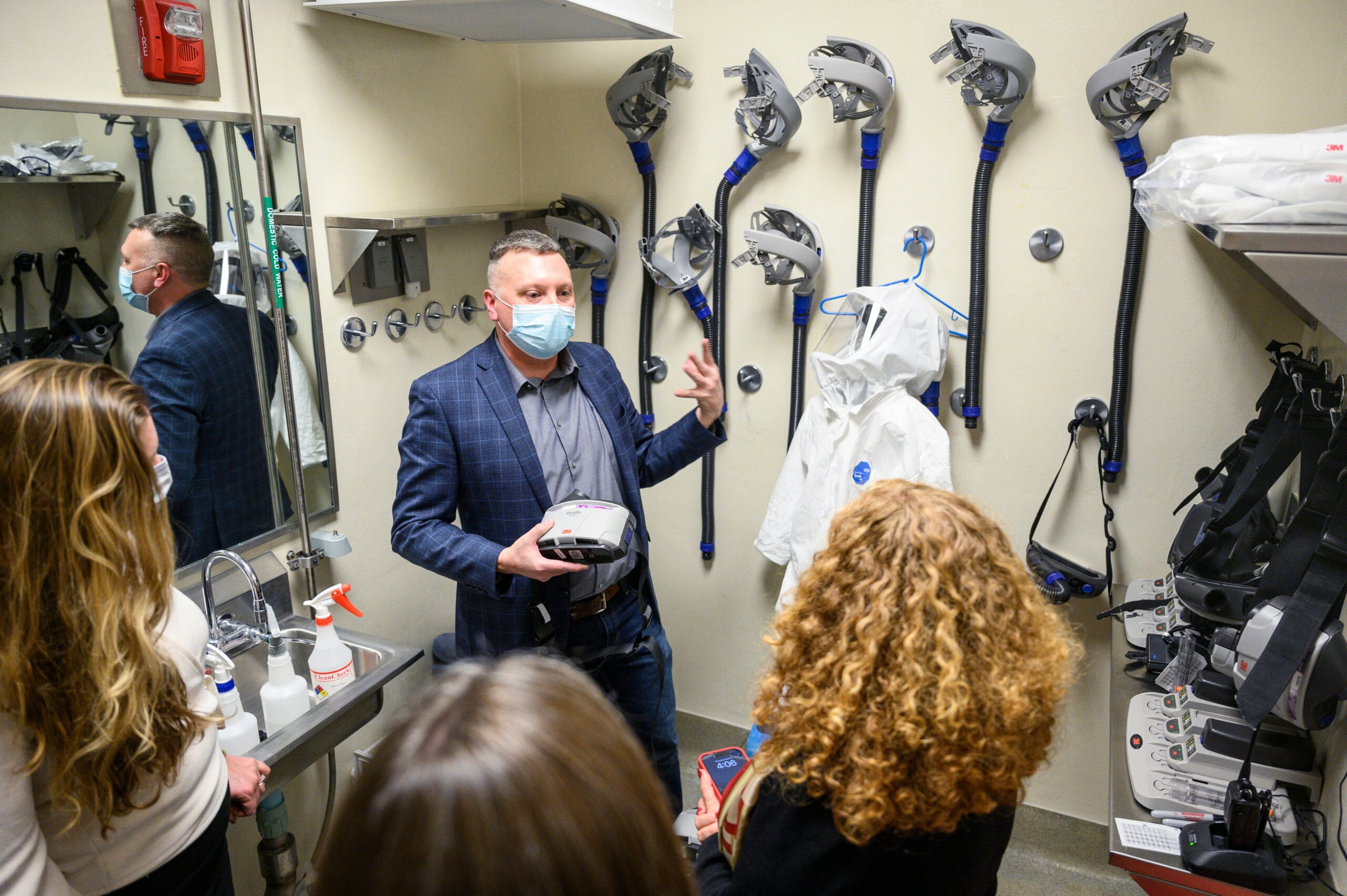A vaccine for Ebola is being developed at UW-Madison and is moving into phase one of testing on humans later this year. We talk to a researcher for more information. We also hear more about Grindr, a dating app used by gay men, sharing HIV status and test dates with third party companies and break down the situation in Syria with recent gas attacks.
Featured in this Show
-
Grindr Will Stop Sharing Users' HIV Status With Third-Party Companies
The move comes after a backlash from some of the dating/hookup app’s users, as well as LGBTQ and privacy advocates. We talk to an expert on issues of privacy for people living with HIV about the story and what it means for the LGBTQ community.
-
Ebola Vaccine Developed At UW-Madison Is Set For Clinical Trials This Year
For the people of Sierra Leone, the Ebola outbreak of 2013 is more than just a memory.
“The whole country was impacted, the economy, everything was shut down because of Ebola, and things are now just beginning to come back to normalcy,” says Alhaji N’jai. “The lingering effect is still there.”
N’jai is a research fellow in the University of Wisconsin-Madison’s Department of Department of Pathobiological Sciences.
With his help, the next Ebola outbreak may not be so devastating. He’s one of the researchers developing a new Ebola vaccine at UW-Madison. The vaccine is set to enter clinical trials in Japan in December.
N’jai says the team has a unique challenge with Ebola. Though it’s not a fast-moving disease, it’s extremely deadly — one of the most deadly viruses to humans.
“In 2010 to 2014 up to 2015, thousands of people died,” he said. “And there was nothing you could do. And if there was a vaccine at that moment, we could have saved lives. So the vaccine is definitely one of the best routes in terms of controlling, in terms of finding a solution for Ebola.”
Over 11,000 people in West Africa died from the most recent Ebola outbreak. The disease was first identified in 1976 in what is now the Democratic Republic of Congo and the Republic of South Sudan.
The disease is characterized by fever, stomach pain, unexplained bleeding or bruising, and vomiting.
Researchers are developing the vaccine on a team led by Yoshihiro Kawaoka, a UW-Madison expert on avian influenza and Ebola.
Other Ebola vaccines in development are using a protein fragment from Ebola or another virus. But the UW-Madison team is taking a different approach. They’re using the entire virus.
“What we’ve actually done here from UW-Madison is actually to knock out the gene … that is actually responsible for replication and attaching to human cells,” N’jai said.
Without that gene, the virus is inactive.
With a whole virus vaccine, the immune system is better primed for the real thing, versus just seeing a piece of the virus, he said.
The vaccine is now being manufactured at UW-Madison’s Waisman Center. The team will produce 1,000 doses there to be used in the clinical trials.
With enough funding, the team could potentially move to a second phase of clinical trials in a country like Sierra Leone. Or, the vaccine could be shelved and brought out in the case of another outbreak. It’s all funding dependent, N’jai said. And Ebola is not a disease that affects an area where pharmaceutical companies see a lot of profit, he said.
Best-case, if the vaccine soars through clinical trials, it could be ready to go by the middle of 2019. Though the 2013 outbreak is over, there’s still an urgency to developing a vaccine, N’jai said.
“The faster we can get some of these vaccine candidates up and closer to approval, I think it’s very important because it’s very unpredictable,” he said. “An outbreak could happen today, it could happen tomorrow. We just don’t have enough information about the environment, the conditions that precipitate an outbreak.”
-
An Ebola Vaccine Developed At UW-Madison Is Set To Begin Human Testing This Year
An experimental vaccine developed at the University of Wisconsin is taking aim at Ebola. The vaccine was tested successfully on monkeys in 2015. Now, phase one clinical trials – for humans – will begin later this year. One of the researchers involved with the effort talks about the process of developing an Ebola vaccine, and what it could mean for public health.
-
President Trump And Advisers Weigh U.S. Response Following Suspected Chemical Attack In Syria
This weekend a suspected chemical attack in the Syrian city of Douma left dozens dead and hundreds injured. Since then, President Donald Trump has said he’ll work with advisers to determine the U.S. response to the attack. And U.S. Ambassador to the United Nations Nikki Haley has vowed that the United States will step up to deal with the crisis in Syria if the UN will not. We’ll talk to Professor Alise Coen of the University of Wisconsin-Sheboygan about the Syrian civil war, the chemical attack this weekend, and how the international community has responded.
Episode Credits
- Rob Ferrett Host
- Rachael Vasquez Producer
- Chris Malina Producer
- J. Carlisle Larsen Producer
- Ayako Miyashita Ochoa Guest
- Alhaji N'jai Guest
- Alise Coen Guest
Wisconsin Public Radio, © Copyright 2024, Board of Regents of the University of Wisconsin System and Wisconsin Educational Communications Board.


